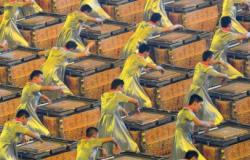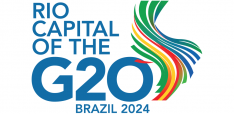Trump's TPP Policy: From Regional Game of Thrones to Lost Trade Leadership

Antoine Martin examines Trump's plan to 'make China great again'.
While trade policy and rule-making over the past years has largely been about an influence contest involving the US and China as the main players, the decision of Donald Trump to take the Trans-Pacific Partnership (TPP) agreement out of the way will have a major impact on trade diplomacy, both worldwide and regionally. In fact, this policy move will significantly reshuffle the cards and, in the medium term, could impact the leadership of the US trade diplomacy in unexpected ways, to the benefit of APEC countries in general and to the satisfaction of China in particular.
A lot has been happening lately on the global trade policy front, and most developments have something to do with President-Elect Donald Trump's policy on the matter.
Last week, Mr Trump announced - or perhaps should I say confirmed - that putting an end to the TPP agreement would be his first priority. In doing so, he certainly pleased an electorate worried about the effects of globalisation on the US industrial fabric and on the US society at large, but he more worryingly sent the world the message that the US would not play a leadership role in the future of trade and investment policy and rule-making in the forthcoming years. Quite the opposite, Mr Trump's policy will open the way to Asian and Chinese influence over future rule-making efforts, thus putting an unexpected end to a long lasting game of thrones.
Global trade landscape: mega-agreements will make the difference
Despite Mr Trump's opinion, preferential trade and investment agreements are the future of trade rules.
Trade debates and negotiations have historically taken place 'multilaterally' under the WTO, which in theory operates as a world forum for trade policy and rule-making. Because of its 'one size fits all' model, however, the WTO has been in a deadlock for the last fifteen years (discussions blocked on agriculture) and is currently in no position to offer any sort of trade leadership.
The WTO is now attempting to set up an alternative 'pragmatic multilateralism' culture, but in reality past and current practice suggests that preferential deals are the best chance of developing cross-border trade and the related policy and legal frameworks. In fact, preferential discussions and mega-agreements such as the TPP, CETA or TTIP have become very serious alternatives to never-ending WTO discussions because - in contrast with multilateral talks - they have allowed leaders to discuss more specific agreements with a limited amount of politically committed partners, and on very specific sectors, such as cross-border investment, financial services, competition, public procurement, telecommunications, e-commerce, etc.
In other words, 'multilateral' efforts involving the international community as a whole have failed and regional trade agreements have become the future of trade policy and rule-making. As a result, whoever manages to impose his trade philosophy through large but curated and selective agreements is likely to have a major influence on regional and global markets. And over the past decades, the US have been great at doing just that.
Free trade rule-making used to be a game of thrones dominated by the US
The US actually used to be one step ahead of China.
Simply put, the US has been pushing the TPP negotiations (without involving China) whilst Beijing has worked on various alternatives such as the Free Trade Agreement of the Asia-Pacific (FTAAP) in which the US is no longer involved. Not to forget the RCEP. On the one hand, TPP involves twelve countries representing about 40% of the world's GDP and one third of world trade. On the other hand, estimates suggest that RCEP and FTAAP would respectively account for about 30% and 57% of global GDP.
Until now, TPP was far more advanced than RCEP which appears to be stuck in regional political meanders and criticised as a stapled copy and paste mix of other treaties. As if every new treaty was simply drafted from scratch. FTAAP is in turn clearly at the sketching stage, however, it has been described as an ambitious political project which, at some point, would supersede TPP both in terms of members and numbers.
Trade diplomacy, that is, was until very recently a policy and political influence game of throne both at the Asia-Pacific and at the global level. The stake, in turn, was to impose one's vision of trade to the rest of the world while having the largest say possible on the legal standards to be developed and eventually applied.
With the US out, however, ...
Mr Trump's political agenda is however reshuffling the cards
With the US leaving the race - and considering the difficult situation in which Brussel's trade diplomacy is at the moment - trade leadership will change hands, possibly to the best interest of APEC countries. In fact, the 2016 APEC meeting which took place in Lima has clearly suggested that Mr Trump's political ideas and policy visions would remain behind.
First, various leaders have made it clear that trade negotiations would continue with or without the US. Chilean Vice-Minister of Trade Paulina Nazal Aranda refused to declare TPP dead but admitted looking at other options for regional development, Peru started talks to join RCEP in November, while the Prime Minister of New Zealand insisted that 'even if the US doesn't want to engage in free trade, president trump needs to know other countries do'.
Second, APEC itself has taken care of sending a political message at the opposite of Mr Trump's. While the President-Elect has promised to build various kinds of walls - in bricks and mortar as well as politically speaking - to protect the US from the world; APEC Leaders have pledged to prevent all kinds of protectionism and plan on making regional integration a reality. While Mr Trump's leadership will be based on fears towards global trade and Chinese investors; APEC Leaders will call for more cross-border investment and urge their negotiators to start making the FTAAP a reality. While Mr Trump's trade policy is sending the message that the US will be stepping down as a major leader in the APEC zone and within the APEC group; President Xi JinPing has already started to call for greater cooperation and is lurking at America's current trade partners.
From game of thrones to lost leadership opportunity
Hence, whilst the TPP agreement used to be mocked as a possible pathway to a greater forthcoming FTAAP, it would seem that a dead-born TPP would remain nothing more than a failure. A missed global and regional trade leadership opportunity, in sum.
So, Mr Trump's trade policy might be the end of a fascinating chapter. The decision to ‘make America great again’ by protecting it from the rest of the world will essentially give a temporary end to a game of influence which has been going on for quite some time. However, the game will of course continue as Beijing will not stop its efforts to become increasingly relevant politically-speaking. For its part, Washington could be losing its status of a superpower with tremendous trade leadership... to become a mere APEC Member without a regional political or rule-making agenda. A little bit as if Mr Trump's campaign had been about ‘making China great again’. Quite a strategy, indeed...
Dr Antoine Martin - The Chinese University of Hong Kong, Faculty of Law - is a scholar working on trade & investment policy and rule-making, at the global and regional & Asian levels. He particularly works on the financial services sector but follows, analyses and comments globalisation-related developments at large. Dr Martin has also worked as a consultant to multinational and governmental organisations, and is the Founder of The Political Economy Circle, a discussion-focused think-tank which aims at increasing awareness on global issues within the business community.


